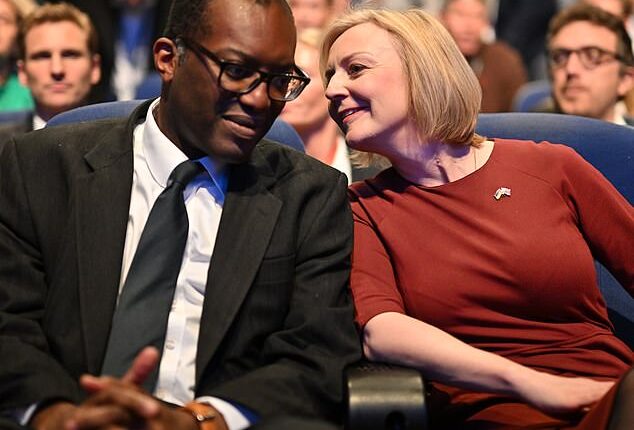
The value of Britain’s biggest pension fund has plunged by £20 billion, more than a fifth of its entire value, after turmoil in financial markets pummelled its investments.
The Universities Superannuation Scheme (USS) looks after the pensions of 460,000 higher education workers, past and present.
It is one of few remaining defined benefit (DB) schemes still open to new joiners – paying a pension based on a member’s final salary.
These funds were wrongfooted when ex-Chancellor Kwasi Kwarteng’s disastrous ‘mini-Budget’ caused a huge sell-off in Government bonds that exposed hidden borrowing in the pensions system.
Latest figures from the USS show its assets plunged from £92.2 billion to £72.6 billion in the nine months to the end of September – the biggest fall in absolute terms reported so far by any workplace pension scheme.


Flawed: Liz Truss and Kwasi Kwarteng’s mini-Budget sparked financial chaos
That period included the week that followed Kwarteng’s speech, when Liz Truss was Prime Minister. USS blamed the rout on falling equity and bond markets.
But pensions expert John Ralfe said he was ‘suspicious’ about whether that was the entire reason.
He noted the scheme’s high exposure to illiquid assets such as private equity, ‘which people are overvaluing’.
It has also emerged that USS paid six staff at least £1 million each last year. The highest paid, thought to be chief investment officer Simon Pilcher, received up to £2.5 million.
Ralfe said: ‘This just looks wrong when future pension benefits for USS members are being cut back.’









